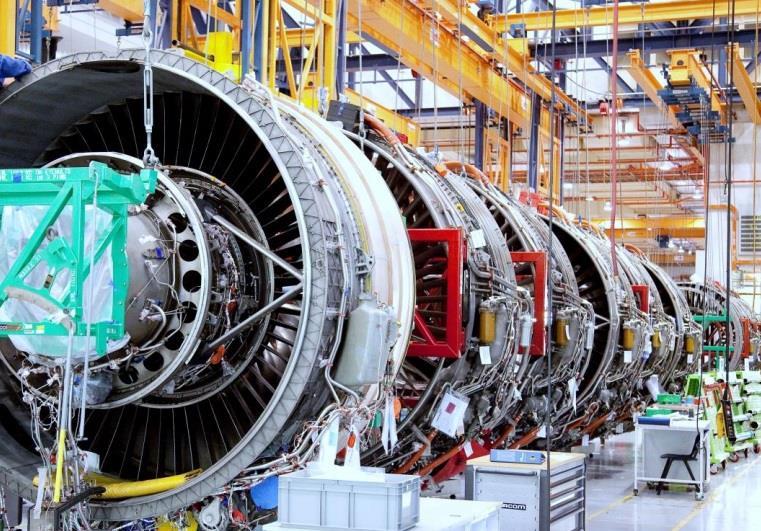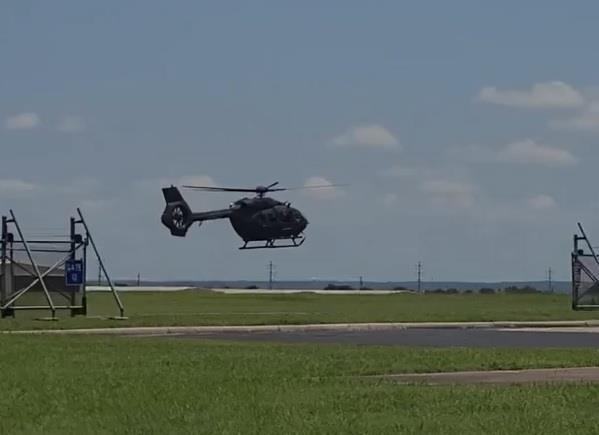Lessors prevail over insurers in Russian seizure case after judge rules aircraft ‘lost’
Company
Legal Links
Contact
- +44 7947 753363
- contact@skylineairporttransfers.co.uk
- 6 Walsall Street Bilston Wolverhampton WV14 0AT
Recent Posts
© Skyline Airport Transfers. Created by![]() Beaphoenix WebDesign ltd
Beaphoenix WebDesign ltd
Popular Locations:
Birmingham: Aston, Bournville, Edgbaston, Erdington, Great Barr, Hall Green, Handsworth, Harborne, Northfield, Quinton, Soho, Sutton Coldfield, Amblecote, Brierley Hill, Coseley, Cradley, Gornal, Halesowen, Kingswinford, Lye, Netherton, Sedgley, Stourbridge, Quarry Bank, Bearwood, Blackheath, Cradley Heath, Great Bridge, Old Hill, Rowley Regis, Smethwick, Tipton, Tividale, Wednesbury, West Bromwich, Balsall Common, Bickenhill, Castle Bromwich, Chelmsley Wood, Dorridge, Elmdon, Hampton in Arden, Kingshurst, Knowle, Marston Green, Meriden, Monkspath, Hockley Heath, Shirley, Aldridge, Birchills, Bloxwich, Brownhills, Darlaston, Leamore, Palfrey, Pelsall, Pheasey, Shelfield, Streetly, Willenhall, Bilston, Blakenhall, Bushbury, Compton, Ettingshall, Heath Town, Oxley, Penn, Tettenhall, Wednesfield, Burntwood, Lichfield, Cannock, Rugeley, KIDDERMINSTER, Brierly Hill,
STOURPORT-ON-SEVERN
Coventry: Allesley, Binley, Keresley, Stoke, Tile Hill
Leicester: Abbey Rise, Ashton Green, Aylestone, Beaumont Leys, Bede Island, Belgrave, Blackfriars, Braunstone, Braunstone Frith, Bradgate Heights, Clarendon Park, Crown Hills, Dane Hills, Evington, Evington Valley, Eyres Monsell, Frog Island, Goodwood, Hamilton, Highfields, Horston Hill, Humberstone, Humberstone Garden, Kirby Frith, Knighton, Mowmacre Hill, Netherhall, Newfoundpool, New Parks, North Evington, Northfields, Rowlatts Hill, Rowley Fields, Rushey Mead, Saffron, Southfields, South Knighton, Spinney Hills, Stocking Farm, Stoneygate, St. Matthew’s, St. Mark’s, St. Peters, Thurnby Lodge, West End, West Knighton, Western Park, Woodgate
Derby: Matlock, Ripley, Ashbourne, ILKESTON, SWADLINCOTE , BURTON-ON-TRENT, BAKEWELL,
ALFRETON, BELPER, HEANOR
Telford: Market Drayton, Newport, Shifnal, Broseley, Much Wenlock
Stoke: Stoke-on-Trent, Newcastle, Leek, Uttoxeter, Stone, Stafford
Worcester: Worcester, Droitwich, Pershore, Broadway, Evesham, Malvern, Tenbury Wells
Gloucester: Gloucester, Cheltenham, Stroud, Cirencester, Tewkesbury, Badminton, Berkeley, Blakeney, Chipping Campden, Cinderford, Coleford, Drybrook, Dursley, Dymock, Fairford, Lechlade, Longhope, LydbrookLydney, Mitcheldean, Moreton-in-Marsh, Newent, Newnham, Ruardean, Stonehouse, Tetbury, Westbury-on-Severn, Wotton-under-Edge.
Nottingham: Nottingham, Sutton-in-Ashfield, Mansfield, Newark, Southwell, Grantham, Sleaford
Leicester: Leicester, Hinckley, Loughborough, Melton Mowbray, Oakham Market, Harborough, Lutterworth, Wigston, Ashby-de-la-Zouch, Ibstock, Markfield
Oxford: Oxford, Kidlington, Chipping Norton, Thame, Wallingford, Didcot, Wantage, Abingdon, Banbury, Carterton, Woodstock, Bicester, Witney, Chinnor, Watlington
Chester: Chester, Deeside, Bagillt, Buckley, Holywell, Birkenhead, Preston, Wallasey, Wirral, Neston, Ellesmere Port, Prenton
Airports we serve:
BHX: Birmingham Airport
EMA: East Midlands Airport
LHR: London Heathrow Airport
MAN: Manchester Airport
LGW: London Gatwick Airport
LTN: London Luton Airport
SOU: Southampton Airport
BRS: Bristol Airport
LPL: Liverpool John Lennon Airport
LCY: London City Airport
STN: London Stansted Airport



Claims brought by lessors over the loss of aircraft leased to Russian airlines have been backed in a judgement on the complex case, which largely rejected the defences of insurance firms.
Irish lessor AerCap and several other leasing companies sought to recover losses under ‘all risk’ and ‘war risk’ insurance policies after dozens of aircraft – distributed among some 18 operators – were seized by the Russian government.
AerCap, which pursued the claim over 116 aircraft and 15 engines, says the judgement entitles it to recover some $1 billion from insurers by 2 July.
The case, heard by the commercial division of London’s High Court, centred on such legal arguments as whether the aircraft seizure amounted to a “physical loss” under all-risk policies – something the insurers had contested, because the aircraft were not destroyed.
“It is not the case that all airlines uniformly considered it in their commercial interests to retain all the aircraft and engines,” the ruling states, pointing out that several carriers – among them S7 Airlines, Ural Airlines, Red Wings, Utair and others – all considered that “there might be advantages in returning at least some aircraft”.
But it adds that the airlines which “were most committed” to returning their aircraft to lessors “clearly came under increased constraints, and pressure not to do so”.
The matter was effectively settled on 10 March 2022, after the Russian government implemented a resolution – designated 311 – enacting an export ban on goods including aircraft and engines.
If there had been any flexibility in the days leading up to this resolution, the ruling says, the “room for manoeuvre disappeared” after its issue.
“Under most regimes, but especially under an authoritarian regime such as Russia’s, obedience to an enactment such as [resolution] 311 can be expected,” it states. “It was to be expected that, from its enactment, airlines would comply with it, whether or not it represented what they would otherwise have wished to do.”
AerCap primarily claimed its aircraft were lost through ‘all-risk peril’, with ‘war-risk peril’ as an alternative. Other lessors in the case claimed the reverse.
The judgement finds the entry into force of resolution 311 is the “proximate cause” of the loss and amounts to a “restraint” or “detention” under ‘war-risk’ cover for government peril. Loss of the aircraft was not proximately caused by an ‘all-risk’ peril, it says.
Insurance firms also had a number of defences rejected including the application of exclusions and a claim that sanctions barred payment.
AerCap’s war-risk cover was limited to $1.2 billion. The lessor’s law firm, Herbert Smith Freehills Kramer, says the actual award totalled $1.035 billion.
The lessor’s claim, it adds, was “by far the largest” in the case, which also included such leasing companies as Dubai Aerospace Enterprise.
AerCap took a $2.7 billion charge against its earnings in 2022, when it wrote off or impaired aircraft involved in the Russian seizure. But it managed to recover $1.3 billion in 2023 and $195 million last year, which – combined with the latest judgement – brings its total pre-tax recovery to $2.5 billion.
“Claims against insurers and reinsurers of the Russian airlines’ insurance policies in respect of a number of these assets remain ongoing…and we intend to continue to vigorously pursue those claims,” says the lessor.
“However, the collection, timing and amount of any potential further recoveries in respect of those claims are uncertain.”
Source link
Share This:
skylinesmecher
Plan the perfect NYC Memorial Day weekend
Pack only what you need and avoid overpacking to streamline the check-in and security screening…
LA’s worst traffic areas and how to avoid them
Consider using alternative routes, such as Sepulveda Boulevard, which runs parallel to the 405 in…
Strong aftermarket drives up Rolls-Royce aerospace profits despite dip in engine deliveries
While supply-chain issues dragged engine deliveries down last year, Rolls-Royce’s financial performance in civil aerospace…
Airbus plots European-developed version of autonomous H145M helicopter
Airbus Helicopters is actively pursuing a domestically-developed autonomous uncrewed version of its H145M light-twin for…
Canada’s first Pilatus PC-21 Siskin II trainer enters flight-testing in Switzerland
Pilatus has completed the first flight of a PC-21 trainer produced for the Royal Canadian…
French navy receives final upgraded ATL-2 maritime patrol aircraft
France has completed a major upgrade to its navy-operated fleet of Dassault-Breguet ATL-2 maritime patrol…
BK 160 crashed into lake during upset-recovery training but cause remains elusive
Dutch investigators have been unable to determine conclusively why a Blackshape BK 160 descended rapidly…
Ex-GTLK Europe 777-300ERs sold for engine and spares recovery
Joint liquidators of the Russian-linked leasing firm GTLK Europe have sold three Boeing 777-300ERs to…
BAE Systems expands UAS technology pact with US partner Survice Engineering
BAE Systems’ FalconWorks unit is to expand its collaboration with US partner Survice Engineering, after…
Modified LMS-901 Baikal prototype carries out maiden flight
Russian airframer UZGA has started test flights with the latest prototype LMS-901 Baikal utility aircraft,…
GTF shop visits continue to drive commercial maitnenance revenues at MTU
MTU Aero Engines is expecting continuing strong demand for powerplant maintenance, with the persisting Pratt…
Fraudulent UK spares firm generated nearly £7m from unapproved CFM56 parts
UK fraud investigators have disclosed that a small company generated £6.9 million ($9.3 million) in…